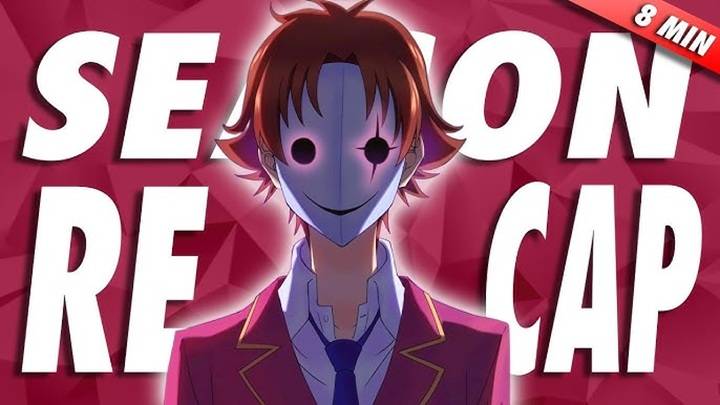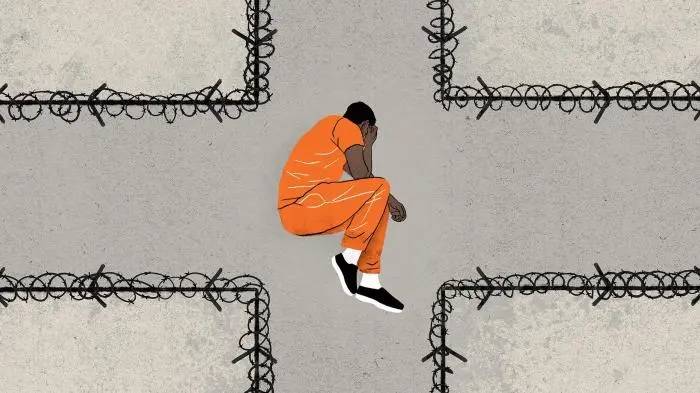
Classroom of the Elite Season 2: Complete Breakdown of Plot, Characters, Strategy, and Future Predictions
Season 2 of Classroom of the Elite takes everything fans loved about the first season, psychological manipulation, power struggles, and complex character motivations, and turns it up several notches. Returning to Tokyo Metropolitan Advanced Nurturing School, this season dives even deeper into the political structure of the school, the evolution of Kiyotaka Ayanokōji’s cold strategy, and the inner dynamics of Class D as it fights its way up the social ladder.
Season 2 isn’t about being smart or traditional competition. It’s psychological chess where loyalty is doubted, secrets revealed, and each episode chips away at the facade of equality. Below, we look at each of the major themes, character builds, episode twist, and fan theory as we discuss what makes this season a must-watch for psychological anime fans.
A Quick Look Back at Where We Stopped in Season 1
At the end of Season 1, Class D successfully survives the island test thanks to Ayanokōji’s behind-the-scenes maneuvers. Horikita, the face of Class D’s visible leadership, starts to grow into her role, while Kushida reveals more manipulative layers beneath her cheerful surface. Meanwhile, Ryuen from Class C and Ichika from Class A begin to emerge as significant threats in the larger game being orchestrated by the school.
Season 2 brings with it even more drama, with new challenges that are far less book-oriented and far more social pressure, manipulation of people, and moral ambiguity.
Episode-by-Episode Guide to the Psychological Warfare

Students are introduced to a new challenge in the guise of the Mixed Training Camp in Episode 1. Here, students are placed in randomly formed groups consisting of students from all classes. Each team is tasked with selecting a leader who will be secretly selected from among them. If the other team identifies the leader, they are penalized in terms of points. Otherwise, they are declared winners. The test forces characters to establish trust in strangers while their instincts are tested. Ayanokōji uses this opportunity to keep a low profile while indirectly controlling his own team and rivals.
In Episode 2, Horikita starts to break free from her social limitations. Although she is a genius student. But her inability to relate to her classmates becomes an issue. Ayanokōji encourages her to create emotional bonds, even if superficial. To help her become a better leader.
By Episode 3, Kushida begins to feel pressure. With her cute facade being a well-known quality, her true personality, controlling, manipulative, and egotistical, gradually is revealed. Placed in groups where emotional intelligence is most important, she starts to lash out at others. Ayanokōji takes advantage of this weakness and begins to collect dirt on her.
Episode 4 marks a turning point. A new student, Hiyori from Class C, seems innocuous at first. But turns out to be a careful observer who notes inconsistencies in Ayanokōji’s story. Their interactions become a battle of subtext and hidden meanings. Meanwhile, Ryuen becomes increasingly brutal in his methods. By openly threatening his own classmates to enforce loyalty.
In Episode 5, Ayanokōji is thrust into the spotlight in a group debate test. Although he likes to keep to himself, he stands up and performs an intentionally subpar presentation so that people would underestimate him. At the same time, he manipulates the scores behind the scenes by giving fake information to other class leaders.
Episodes 6 and 7 feature the opening of the “Paper Shuffle” plot, wherein Class C and Class D contest against one another in an academic competition with pre-set questions. Students are able to, however, exchange questions with each other. Ayanokōji clandestinely rigs the situation so Class C ends up with the most challenging set of questions through cyber manipulation and social engineering. Ryuen is incensed at the result and vows revenge.
Episode 8 reveals flashbacks into Ayanokōji’s mysterious upbringing at the White Room—a brutal government facility designed to create perfect humans through isolation and emotional deprivation. This backstory explains his apathy, detachment, and almost robotic strategic mind. Yet, subtle cracks appear in his psyche as he begins to value certain classmates.
In Episode 9, Ryuen makes his last, direct assault. He gathers intelligence as to who the true leader of Class D is. Having made a mistake previously with Horikita, he then orchestrates a physical fight. But Ayanokōji saves the day and shows his prowess, not just in his mind, but also in body. The fight in the school hallway is one of the highlights. There he takes down Ryuen with ease and shakes the school order.
Episode 10 ends on a subdued cliffhanger. Horikita begins doubting her dependency on Ayanokōji. Kushida, cornered, swears revenge. And Ayanokōji receives a mysterious message from his father instructing him to go back into the White Room. Season 2 concludes by reminding us that this is no longer a matter of grades—it’s a battle for dominance.
Also Read: When Calls the Heart Season 11
Character Development and Inner Turmoil
Ayanokōji’s arc remains the most fascinating. In Season 1, he was mysterious. In Season 2, he is monstrous. Not in a villainous way, but in how methodical and emotionless he can be. He uses people as pieces. And yet, for a brief second, when he helps Horikita without any personal gain, you wonder if a flicker of empathy might exist.
Horikita is also excellent in Season 2. She had been distant and arrogant before, but she learned leadership the hard way. She begins to form a connection with the girls in the class, and she moves from dependency on Ayanokōji to unwilling reliance.
Ryuen is the best of the season’s villains. From his Season 1 character as a brute force figure, he is revealed as strategic, violent, but oddly honorable. His obsession with finding the true leader of Class D makes him unstable.
Kushida’s descent into villainy is now clear. Her dual personality, attention seeking, and control complex make her one of the most dangerous players—because she does not play for winning class, but for personal glory.
Ichika and the Class A nobles remain in the shadows a bit, but their sporadic appearances are evidence they’re restraining themselves, letting other classes cannibalize themselves.
Themes That Make This Season Great
Trust is fragile. Every test the students face during Season 2 is designed to break alliances. Whether they’re choosing a secret leader, trading papers, or voting on who should be kicked out, the system is constructed to recompense for cheating. And students comply.
Meritocracy fails. Season 2 proves you don’t have to be the smartest or athletic unless you understand social advantage. This is a satire of real college and corporate systems, where it doesn’t matter what you know, but who you know.
Morals are not binary. Villains in other anime are heroes here, and vice versa. This moral gray area keeps the viewer questioning every step of the way.
Fan-Favorite Quotes and Scenes
- The Ayanokōji monologue during the battle with Ryuen, “I don’t do things because I care. I do things because you forced my hand”, is already being cited as a fan-favorite quote.
- Horikita’s words, “Perhaps I can’t lead in the way you do. But I can lead as myself,” reflect how she has evolved from theory to practice.
The moment Kushida’s smile vanishes and her tone changes when she threatens Horikita left everyone shocked and was widely shared on fan forums and meme sites.
Season 3 Predictions
Based on the light novel and manga, Season 3 is likely to introduce even higher-stakes tests including an inter-class battle royale, more direct faculty interference, and the reintroduction of Ayanokōji’s father and White Room influences. Expect betrayals, new alliances, and perhaps the first real emotional breakdown for Ayanokōji as his facade continues to crack.
Kushida’s vengeance plot will surely be a key plot. Ichika and Class A may finally take drastic measures. And Ryuen’s defeat may prompt new factions to rise.
Why Season 2 is Important in the Long-Term Arc
Season 2 fills the gap between naive school game-playing and outright power struggle. It sharpens the political structures in school, demonstrates how the adults are experimenting with the students, and brings in psychological trauma as a subplot instead of mere mind games.
The writers are not interested in shock moments alone. They develop multi-layered narratives where each decision you make feels right. Each supporting character matters. Each deception has a cost. Each trial brings out something deeper within the people involved
Should You Watch It?
If you enjoyed Season 1, then Season 2 is a must-see. Watch it closely. It turns your definition of heroism on its head. It presents a mirror to modern educational systems and asks: is this really about education, or control?
This is not just an anime about high-achieving students. It’s about survival, manipulation, and what excellence costs. It’s about what happens when you’re told you can do anything, but only if you sacrifice everyone else to get there.



